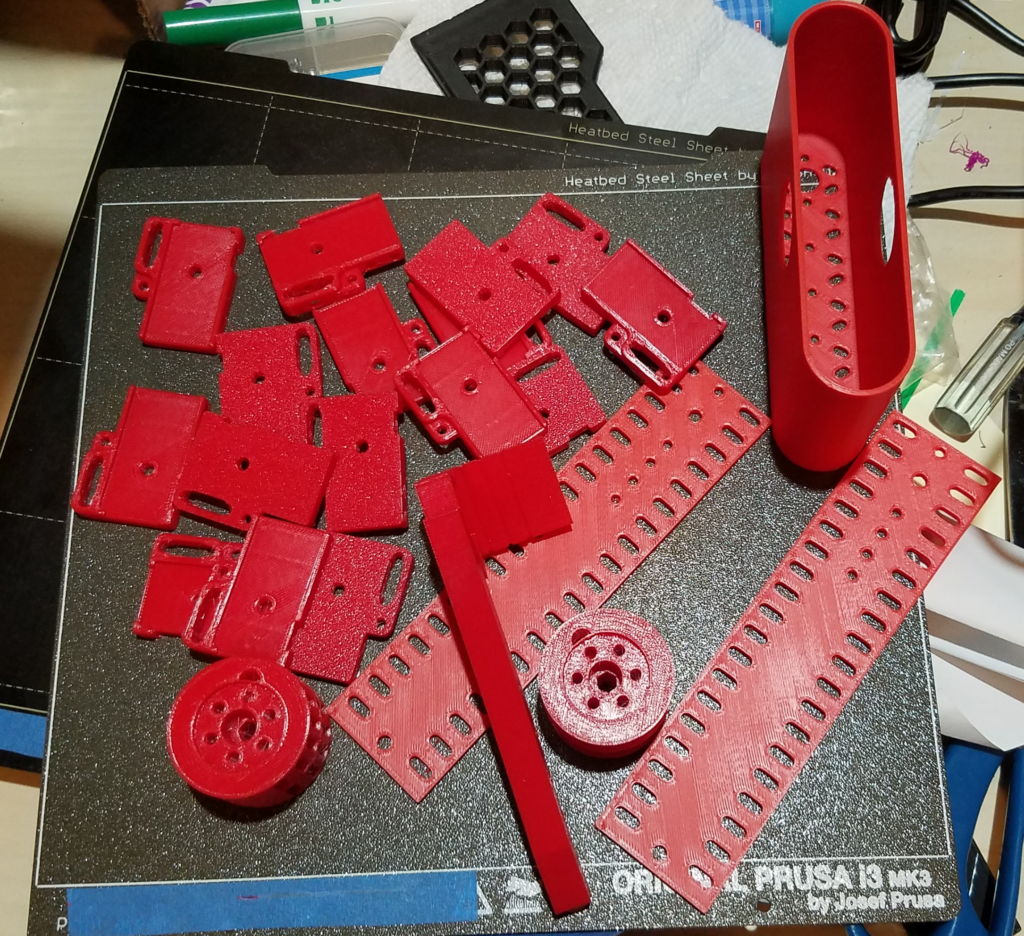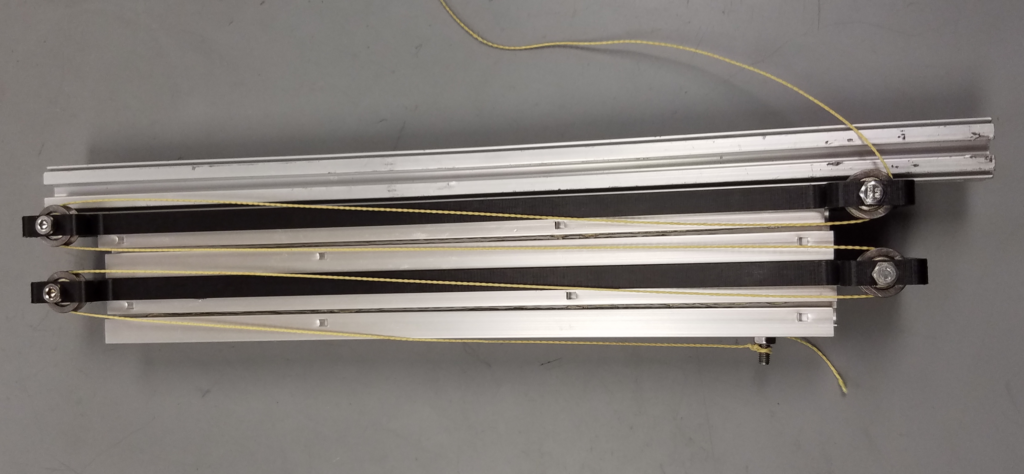I am lead mentor supporting students in learning collaboration, hardware, software, outreach, presentations, and game strategy for FIRST Tech Challenge˺ teams as part of a school-supported program. I primarily work with middle school students, helping them learn organization, management, and technical skills needed to compete against high school teams.
Online learning resources for students coming soon!
My Role
- Teaching students skills for success including:
- teamwork, leadership
- project planning
- conflict resolution
- hardware assembly and common mechanisms
- CAD (Onshape)
- basic programming
- creating an engineering presentation & portfolio
- communication skills
- Organizing club events, such as scrimmages with other teams from the community
- Monitoring team social dynamics, helping to keep teams on task and ensuring all students have an opportunity to be involved in creating their team’s robot
- Preparing teams for the rigors of competitions
- Creating and maintaining a broad knowledge base for hardware, software, and game skills
- Observing games & robots from outside the club to bring in new ideas & help students develop effective strategies
- Maintaining a culture of safety
- 3D printing
- Creating a set of common parts – custom CAD models as an extension to the standard kits
Example Parts



Mentoring Principles & Philosophy
My #1 priority is to ensure all students have an enjoyable learning experience by fostering an environment that is safe, inclusive, and fun.
Emphasis on Learning
While FTC is a competition, the purpose is for students to learn! Often, students get too caught up in the competition aspect, stress themselves out, make lots of mistakes, and stop having fun in the process. Students who embrace learning as the goal tend to get more out of the program.
When a team did not perform as well as they hoped at a competition, the students sometimes get discouraged and can quickly lose their motivation to keep going. I try to refocus them to consider what they learned or would want to do differently. I then ask them what is next – what they can still do to improve for future competitions, or what skill do they want to practice or learn?
Team Leadership
I coach the student leaders in each team I mentor on how to set a realistic timeline for project planning, work with the team to decide project goals, delegate tasks, and motivate less experienced team members. Rather than lead the students directly, I let them brainstorm ideas, help them consider pros and cons of each option and present some alternatives, then encourage and provide technical support to help them achieve their goals.
Strategy
FTC games are complicated, with many tasks to complete. For the 2023-24 season, these include autonomously detecting an object and placing two other objects in corresponding locations, placing small objects onto a tall slanted board precisely to create patterns, and having the robot do a “pull-up” on a bar. Often, students try to build their robot to do everything for competitions early in the season, only to discover they don’t have time to make any of it work well. Instead, focusing on doing one thing well first before moving on to the next task helps them be successful. Doing one or two things well is better than doing everything poorly!
Teams compete in “alliances” with another team, such that each game is 2 versus 2. Most teams will first talk to their alliance partner team when they get to the playing field right before the match, leaving very little time for coordination. I guided the students to approach other teams and create a strategy that maximizes the strengths of each team and their robot.
During games, students sometimes get hyperfocused on one element, missing opportunities to score more points if they were to choose to spend time or energy on a different action. I watch the games and suggest these other strategies to the team during competitions.
Simplicity
I frequently observe students struggling to build complicated mechanisms to handle the most difficult or extreme aspects of the competition. Often, they are not able to finish assembling, programming, and testing these complicated subsystems in time for the competition, or the subsystem has many failure points making it unreliable so it breaks during a competition and cannot be repaired fast enough. “Baby Bot” is a live demo to show these principles in action.
Practice & Planning
Just like in real life, students often underestimate the amount of time things will take, setting themselves up to panic right before their deadlines (competitions)! I remind them that they are still learning and encourage them to leave enough time to troubleshoot, test, and improve their designs.
Feedback from Parents & Students
Brian came to our build sessions every week and gave advice to the teams that needed help. Brian brought lots of game experience, technical knowledge and creative ideas to our club’s teams. Our team especially benefited from his advice on how to tackle some challenging hardware problems, how to improve our robot’s reliability and efficiency, and how to innovate our robot design. We couldn’t have achieved [winning Innovate Award and 4th place overall] without his help. I would highly recommend Brian to any organization.
Thank you, Brian! You have been a huge part of the success for this team and it was a pleasure working with you. The team learned a lot from your guidance.